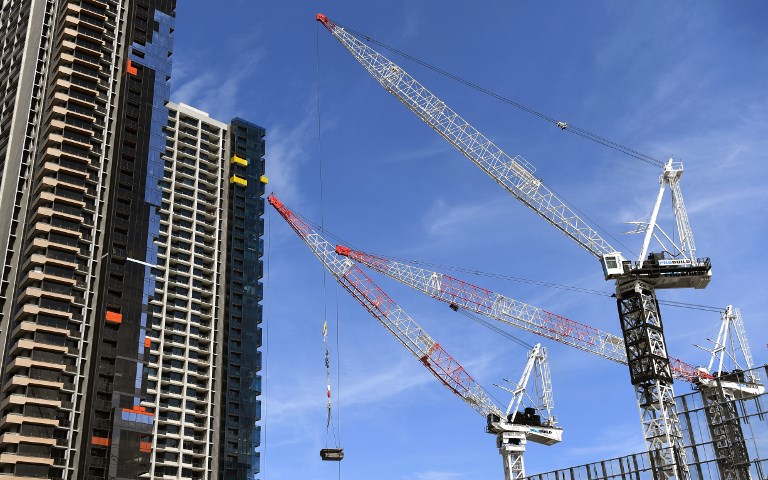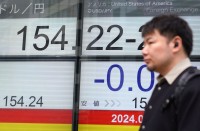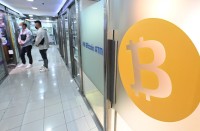
Australia’s central bank held interest rates at a record low on October 2 even as the economy grows strongly, with officials taking into account soft inflation figures and weak wages growth. / AFP PHOTO
SYDNEY, Australia (AFP) — Australia’s central bank held interest rates at a record low on Tuesday even as the economy grows strongly, with officials taking into account soft inflation figures and weak wages growth.
The cash rate has been unchanged at 1.50 percent since the Reserve Bank of Australia last cut it in August 2016, to support non-mining industries as an unprecedented investment in resources waned.
“The low level of interest rates is continuing to support the Australian economy,” RBA governor Philip Lowe said in a statement after the monthly board meeting.
“The board judged that holding the stance of monetary policy unchanged at this meeting would be consistent with sustainable growth in the economy and achieving the inflation target over time.”
The economy expanded 0.9 percent in the March-June quarter, following 0.7 percent growth in the previous three months, supported by increasing exports, and consumer and government spending.
It took the annual rate of growth to 3.4 percent — the fastest since September 2012.
The RBA acknowledged the strong figures but said the outlook for household spending remained a “continuing source of uncertainty”, while the growth in wages — which would help to lift inflation — remained slow.
“Growth in household income remains low and debt levels are high,” Lowe said.
“Wages growth remains low, although it has picked up a little. The improvement in the economy should see some further lift in wages growth over time, although this is likely to be a gradual process.”
JP Morgan economist Tom Kennedy said the bank was unlikely to lift interest rates until the jobless rate, which is at 5.3 percent, fell below five percent.
“If it moves below five percent, that would give the RBA some confidence that the economy is moving in the right direction and wages would pick up, and along with that, inflation,” Kennedy told AFP.
“Our view is that the jobless rate would stabilize at current levels and … consumers will remain relatively hamstring by quite weak income growth.
“That’s been the story for the past couple of years and that’s probably going to be the story again going forward.”
Inflation is at 2.1 percent, at the bottom end of the RBA’s 2.0-3.0 percent target.
Economists do not expect the central bank to lift rates until the last quarter of next year, with tighter lending conditions and falling house prices also likely to hurt consumer spending.
© Agence France-Presse







